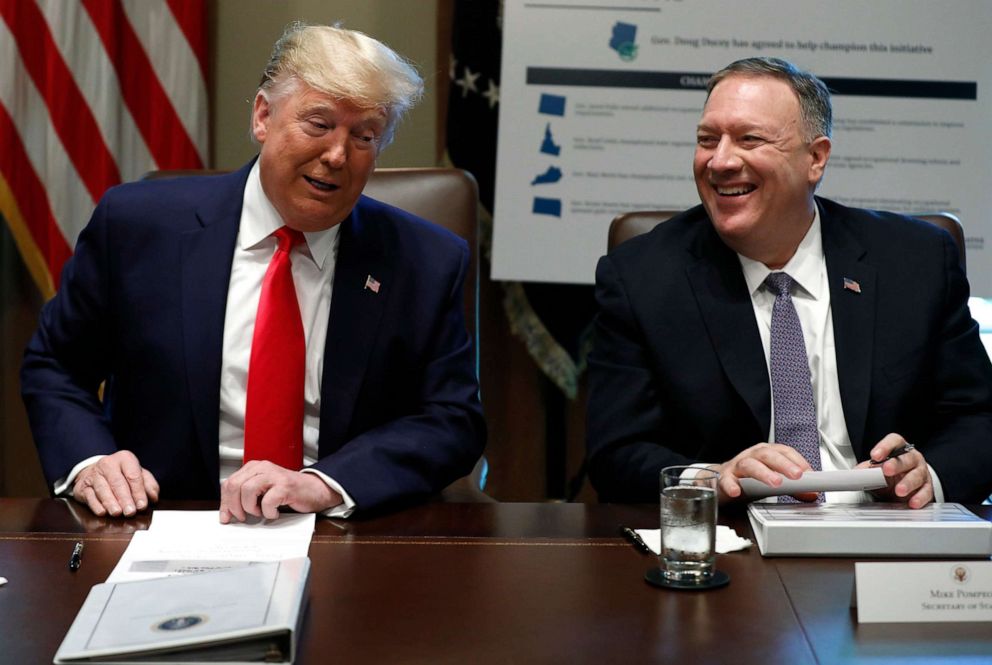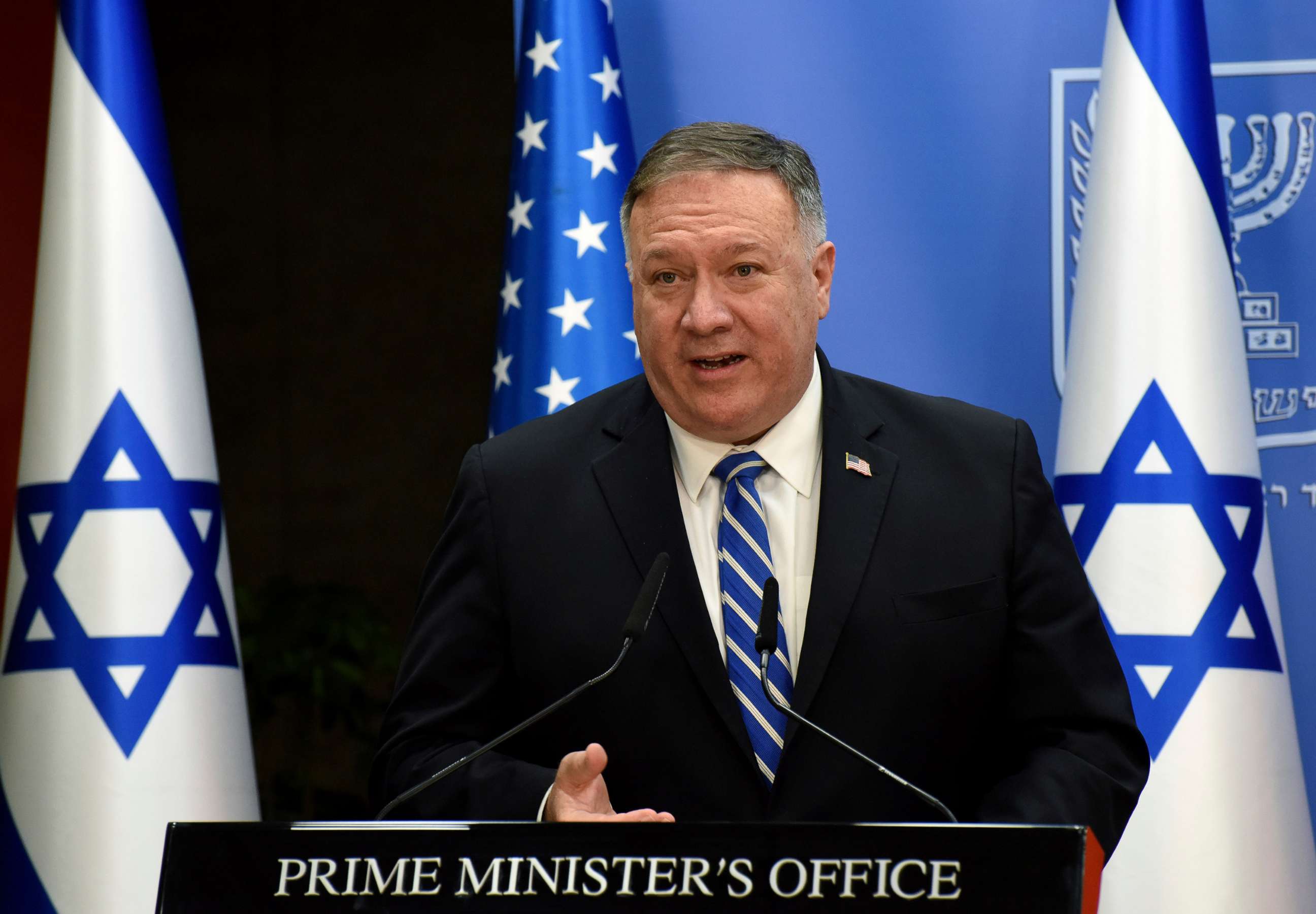Pompeo to speak at RNC in unprecedented move critics call inappropriate
He'll be the first secretary of state to speak at a convention in modern times.
While he is overseas on an official trip, Secretary of State, Mike Pompeo will address the Republican National Convention in his "personal" capacity, the State Department said Sunday, blurring the lines between the two in an unprecedented -- and critics say inappropriate -- way.
Pompeo will be the first sitting Secretary of State to deliver a speech to a party's political convention in modern times, although he is not the first to play a public role.
Slated for Tuesday evening, his speech has already sparked a wave of backlash, with critiques that the top U.S. diplomat is supposed to represent all Americans and not play a role in party politics and that the speech violates department protocol, if not U.S. law.
"As secretary of state, I am obliged not to participate in any way, shape, fashion, or form in parochial, political debates. I have to take no sides in the matter," Colin Powell said in 2004, skipping the Republican National Convention while serving under George W. Bush. Powell, a Republican, endorsed former Vice President Joe Biden in this year's election.

In an email sent to all department staff in February and obtained by ABC News, Pompeo's deputy Stephen Biegun reiterated that message, warning that "our laws and policies" about employees' political activity are critical to "ensure our representation is not perceived as partisan."
The Hatch Act forbids federal employees from engaging in political activities unless they're off duty, outside a federal facility, and not using federal property. The department's own guidelines, known as the Foreign Affairs Manual, say, "A U.S. citizen employee, spouse, or family member shall not engage in partisan political activities abroad, other than authorized activities pertaining to U.S. elections."
Under Pompeo, that has come to include discouraging social media posts "directed toward the success or failure of a political party" or "of one candidate for partisan political office," according to internal guidance sent to U.S. posts overseas and obtained by ABC News.
Even for Biegun, a Trump political appointee, the RNC is off limits: "As a Senate confirmed Department official, I will be sitting on the sidelines of the political process this year and will not be attending any political events, to include the national conventions," he wrote in his note, first reported by Politico.
A State Department spokesperson defended Pompeo's speech by saying that he is participating "in his personal capacity" and that no department resources will be used and no staff are involved in the appearance.
"Looking forward to sharing with you how my family is more SAFE and more SECURE because of President Trump," Pompeo tweeted from his "personal" Twitter account, where he often posts family photos, shares Bible quotes, and trolls Democratic politicians.
But Pompeo will deliver the speech during an official trip to Israel, Sudan, Bahrain, and the United Arab Emirates, meaning at least some department resources, such as requisite security, will be utilized.
It also further deflates the old adage that partisan politics stopped at the water's edge. Biegun urged employees to "carefully" adhere to department policies "designed to support our nonpartisan foreign policy."
Israeli media have also reported that Pompeo will record the remarks from Jerusalem, which the Trump administration recognized as Israel's capital in 2018 and where the U.S. embassy has been relocated from Tel Aviv. The move broke decades of international consensus about Jerusalem's status, but Pompeo has said it is an example of the administration's strong support for Israel, while President Trump said last week he did it "for the evangelicals."

"At a time when peace and security in Middle East is so tough, Jerusalem should not be a prop for the RNC, and @SecPompeo should not be tarnishing the office of SecState. Unprecedented and wrong," tweeted Wendy Sherman, a senior State Department official under Barack Obama and Bill Clinton.
None of the previous six secretaries of state attended their party's political convention. While some before that attended, they did not address the convention, even as they worked behind the scenes.
At the 1976 GOP convention, Henry Kissinger haggled over the party's platform amid a broader intra-party fight. Jimmy Carter's Secretary of State Edmund Muskie was reportedly floated as a replacement for his boss on the Democratic ticket around the 1980 convention. George Shultz attended the 1988 convention and vocalized his support for Vice President George H.W. Bush in interviews, but he did not give a formal address.
"It's probably better for the secretary of state not to. But I'm a Republican, so I'm here and I'm supporting the ticket," he told PBS Newshour.
That has always been a fine line for the secretary of state, particularly when there's been speculation about their own political future, like Hillary Clinton.
But Pompeo has taken that further than most, making clear his presidential ambitions, wading deep into culture wars, and going to battle against Congressional Democrats by declining documents requests or canceling staff-level briefings.




